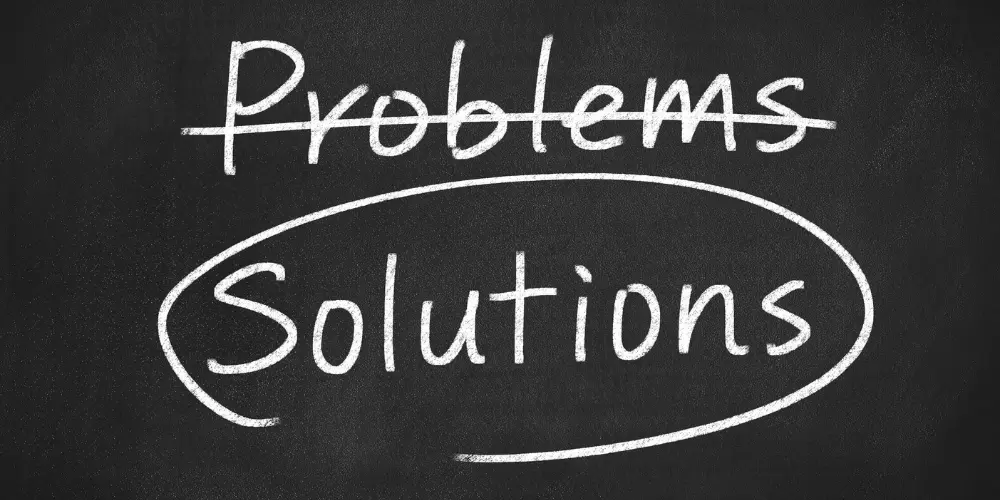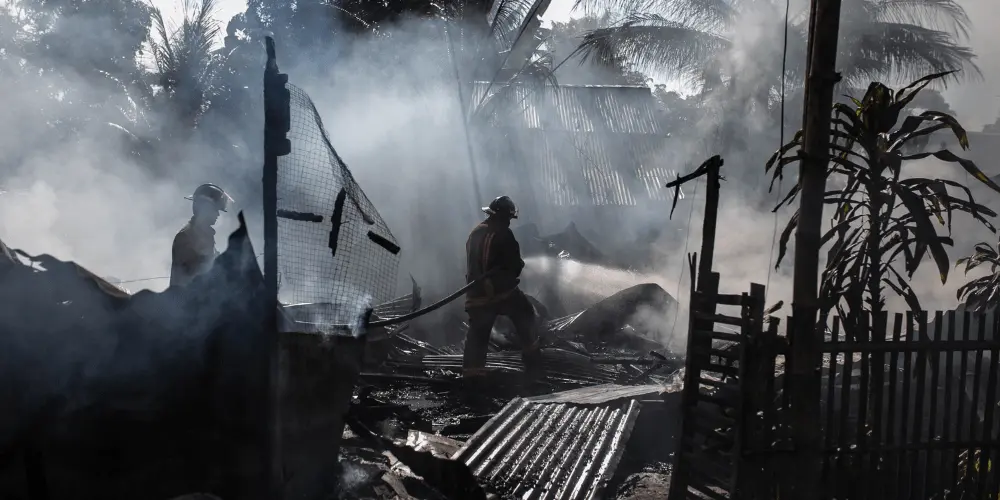
When a disaster strikes, it can leave you reeling. Fires, floods, hurricanes, or even earthquakes can damage not only your home but also your sense of security. In the aftermath, the path forward may feel confusing. You may ask yourself: Which bills should I pay first? Where do I even start? It’s normal to feel overwhelmed, and you’re not alone.
This guide lays out clear disaster recovery solutions. We’ll cover immediate safety steps, the insurance process, where to find financial counseling, and even how to protect your mental and emotional health. Along the way, you’ll find practical links to services that give you direct access to help.
Start with safety. Make sure everyone is accounted for, including pets. If power lines are down, avoid the area and call your utility company. Report gas leaks right away. These small actions protect lives in the critical first hours of recovery.
Use your phone to capture the damage before cleaning up. Snap photos of each room, damaged items, and anything unsafe. Keep receipts for every purchase you make, from tarps to hotel stays. This evidence will later support your insurance claim and show the financial losses your household has endured.
Don’t worry about perfection. Even a handwritten list of damaged items is better than nothing. The goal is to document clearly and keep records in one place.
Call your insurer as soon as possible. Ask for your claim number and write down the date you filed. The insurance process can feel slow, but early action moves your file forward. Keep a log of every phone call and note each response you receive.
If your area has been declared a federal disaster, apply for FEMA help at DisasterAssistance.gov. The application is available online or by phone. Even if you think you may not be eligible, it’s worth applying; many individuals discover they qualify for more support than expected. For more community-specific guidance, see How to Access Disaster Recovery Services in Your Community.
The Small Business Administration offers low-interest loans to homeowners for rebuilding. Some applicants assume SBA is only for businesses, but that’s not true. These loans help repair homes when insurance doesn’t cover everything.
Sadly, scams often appear right after disasters. Watch for contractors who pressure you to sign contracts immediately or ask for full payment upfront. Always check licenses, request written estimates, and contact references. Report fraud so others in your community aren’t affected.
With income uncertain, focus on essentials: housing, utilities, food, and transportation. Delay non-urgent expenses. If you need help, Credit.org’s Financial Education Guides & Downloads can guide you through creating a recovery budget.
FEMA or local agencies may provide temporary housing or rental assistance. If your home is destroyed, ask about affordable housing programs that can bridge the gap until permanent repairs are done. Renters may also qualify for help, so don’t assume aid is only for owners.
If you can’t make mortgage payments, contact your lender right away. Many offer forbearance, repayment plans, or other options during recovery. A quick call can prevent late fees and protect your credit.
The IRS often provides extensions or other relief for disaster survivors. Visit IRS.gov to check whether your state or territory has been granted extra time to file or pay taxes.
When repairing, think long-term. Consider fire-resistant roofing, flood barriers, or stronger windows. These improvements reduce risk and may lower insurance premiums.
Financial stress often spikes after a disaster. You might face mortgage payments while juggling repair costs and temporary housing. HUD-approved housing counseling agencies provide trusted guidance. They can help you understand foreclosure options, connect with state programs, and create a recovery plan that fits your situation.
HUD and the Consumer Financial Protection Bureau both maintain lists of agencies. Many organizations also partner with local nonprofits to expand services during emergencies. At Credit.org, our Consumer Credit Counseling offers one-on-one sessions that help households review budgets and prioritize bills.
Your counselor will gather details about income, debts, and expenses. Together, you’ll map out a step-by-step plan. For deeper guidance, see Financial Counseling After a Natural Disaster: Where to Start.

In the aftermath of a disaster, emotional trauma can linger even after repairs are complete. Sleepless nights, panic, or feeling numb are common reactions. Wellness practices like exercise, rest, and social support can help. If these feelings become too heavy, call the Disaster Distress Helpline at 1-800-985-5990 for confidential support.
Disasters affect entire families. Kids may worry more, and older relatives may need additional assistance. Creating routines — shared meals, story time, regular check-ins — helps everyone feel grounded. Caregivers should also seek support to avoid burnout.
Press releases from FEMA and state emergency management offices provide critical updates. They announce application deadlines, the opening of Disaster Recovery Centers, and new resources. Submitting your applications on time ensures you don’t miss assistance that could stabilize your finances.
Every state has an emergency management department or office that issues press releases. These often highlight partnerships with local organizations or announce when services will be available in certain counties. Staying connected keeps you informed about programs right in your community.
When you file, write down your claim number, the date, and the name of your adjuster. Having this information at your fingertips makes every follow-up call smoother.
Keep a claim diary where you log calls, decisions, and expenses. If paperwork gets lost in the shuffle, having copies of receipts and photos ensures your claim stays on track.
When the adjuster visits, walk through your home together. Point out hidden damage and provide copies of your documents. Ask clear questions about coverage and timelines.
If your claim is denied or reduced, don’t give up. File a written appeal with supporting documents. Many households succeed simply by submitting additional evidence and persisting through the process.
Think of your budget like a triage plan. Pay your mortgage or rent, utilities, and transportation first. These keep you sheltered, connected, and able to work. If you can’t cover everything, call your lender or utility company to explain your situation. Many have disaster response programs that offer short-term relief.
Even small deposits matter. Try setting aside just five dollars at a time. Over weeks, those contributions add up and help you respond effectively to the next crisis. For practical tips, see How to Start an Emergency Fund to Prevent Debt.
Scams thrive after disasters. Watch for fake charities, high-pressure contractors, or lenders offering quick cash at sky-high interest rates. If someone promises overnight approval without checking documents, it’s a red flag. Take time to identify these red flags, such as contractors who demand full payment upfront or charities that can’t prove where donations go
If you encounter scams, submit a complaint to the Federal Trade Commission. Your report helps protect others in your community. It also gives law enforcement evidence they can use against dishonest actors.
National organizations like the Red Cross and local faith-based groups often coordinate food, clothing, and cleanup services. Cities and counties also receive federal funds through the CDBG DR program from HUD, which supports long-term recovery projects such as rebuilding affordable housing and restoring infrastructure. These partners and programs work together to make sure resources reach disaster survivors in need.
Call your bank or credit card company. Many institutions assist individuals by waiving late fees, pausing collection calls, or extending repayment periods. It only takes a phone call to learn what relief may be available.
When you repair, consider upgrades that reduce future losses. Examples include flood barriers, storm shutters, or reinforced roofing. Simple changes can lower risk and may even reduce insurance costs.
Store important data like insurance policies, IDs, and medical records in both a waterproof folder and a secure cloud account. Create a go-bag with cash, medications, and essentials. This ensures you can leave quickly and continue recovery without scrambling for documents.
Have each person know their role in an evacuation. Practice communication drills and rehearse where you’ll meet if separated. For a full walkthrough, read Step-by-Step: Creating a Disaster Recovery Procedure Plan.
At Credit.org, our counselors help disaster survivors create action plans, prioritize bills, and connect with available programs. Explore Managing Debt After a Natural Disaster and our Financial Education Guides & Downloads for free tools.
Prefer to study on your own? Visit our Financial Resources hub for courses on budgeting, credit, and recovery planning. These programs support long-term stability.
If you’re unsure where to begin, check How to Access Disaster Recovery Services in Your Community. Knowing which offices and programs serve your area ensures you don’t miss benefits available to you.
FEMA decisions often arrive within weeks, but the timeline can vary by state or territory. Log in online or call their helpline to check your status.
No. You may need to apply, but you’re not required to accept. Many homeowners and renters use the SBA process to unlock additional FEMA assistance even if they decline the loan.
If your lender ignores you, contact a HUD-approved counselor or call the HOPE Hotline. Housing counseling agencies can often reach lenders directly and ensure your case gets attention.
Recovering from disaster is never easy. After a major event it’s normal to feel exhausted, discouraged, or even fearful of the future. But with steady steps, you can rebuild. Focus first on immediate recovery, then on stabilizing your finances, and finally on preparing for the next challenge.
You don’t have to go through this alone. Credit.org offers Disaster Recovery Counseling to guide you through the financial and emotional challenges of recovery. A counselor will listen, explain your options, and help you create a plan that fits your unique situation. Take that first step today; your recovery process begins with a single call.